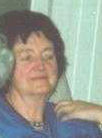First I had an agnostic father – he spent a lot of time taking his widowed mother to church (my grandfather was drowned in the wreck of the Penguin in 1909). I attended the ‘Senior Boys’ Bible class (taught by my great-aunt) by emigrating solo from the kindergarten class.
It was our misfortune to leave a suburban house with a productive vegetable garden to live above a concrete Bank on George Street, Dunedin. (Father was supposed to be pleased he was the youngest manager appointed – he was concerned for his young family.)
He inspected the public school nearby. All concrete too. So I went to St. Hilda’s Collegiate School which had plenty of grass and trees – and Sisters of the Church. There I learned the Anglican creed. We stood in the gym while Sister Mildred stood in the chapel door and led the creed.
Bit by bit I left out the statements I didn’t agree with and finished practically silent. As I was uneducated I started by leaving out ‘I believe in the Holy Catholic Church’ because I knew that we weren’t Catholics – the people across the road were that. When the whispers of the older girls unnerved the younger ones, I left out ‘born of the Virgin Mary’. I came top in Divinity.
When I left to go to Nelson, Sister Mildred kissed me on both cheeks, and said, “you’ll never be a disgrace to your school”. She gave me a crested Bible – by my bed now. It’s only in the last few years I’ve risked underlining it (as my close friends know I do with all my books).
The school motto on the front says Beati mundo corde (‘Blessed are the pure in heart.’). Well; I’ve washed more religious statements out of my head since then.
When my father was in hospital for seven years, (he died ten days after his ninety-seventh birthday party) he was very patient with the nurse who called him ‘a good Christian gentleman’, and only rarely asked her to leave out the ‘Christian’.
While he could still see clearly I fed him with humanist books. Then read to him when I was there in school holidays. So that he had some respite from the Christian atmosphere, I filled the spaces in his address book with quotes from the books we read. We found a young lawyer on the executive staff of the hospital to read to him on Wednesday lunch hours. We looked after her goldfish over the summer holidays; but never quite worked out its dietary needs.
I looked for large print books on philosophy and science as he didn’t think the hopital’s collection of Zane Grey and love stories worth the effort.
I saw the Humanist Society of New Zealand advertisement in the Listener and wrote to the box number in Auckland. Very promptly I had a phone call from Frank Dungey, Wellington Secretary.
He looked in all sorts of places. No luck. After several rings he asked if I’d like to come to a meeting.
So came many rewarding Sunday afternoons at Peggy Slater’s, Frank’s, Jeannette and Peter Jacobson’s, and Jim Dakin’s etc etc and at my home. It’s been all go since.
Eileen Bone was awarded the 1995 Ray Carr Award, was a member of the Humanist Society in Wellington and held many official and advisory positions. After her death in 2000 The Humanist Trust came into being.
